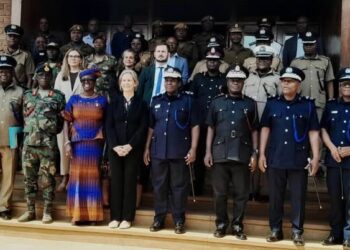Dr. Dalitso Kabambe’s bold political maneuver has spectacularly backfired, leaving him isolated, doubted, and betrayed within both the UTM and the Democratic Progressive Party (DPP). His leadership within the UTM is quickly unraveling and crumbling, as cracks widen both inside the party and across the fragile DPP-UTM alliance talks.

Once seen as a potential unifier, Kabambe now faces growing distrust, accusations of incompetence, and rising fears that he is orchestrating UTM’s silent handover to DPP forces loyal to former President Arthur Peter Mutharika.
What was meant to be a masterstroke alliance between UTM and DPP has instead hit a brick wall. Senior UTM leaders question Kabambe’s motives insisting that the party is ready to go it alone during the September elections, while DPP heavyweights reject any deal that doesn’t prioritize their own dominance.
With internal revolts brewing and opposition alliances collapsing around him, accusations swirling and secret plots exposed, Kabambe’s political ambitions are now teetering on the brink of failure pushing him at the center of a collapsing political dream while the future of UTM also hangs in the balance.
Kabambe, a relatively new political figure, is currently at the center of this storm and his political future is at a crossroads.
The Leadership Struggles Within UTM
Kabambe’s lack of appeal within UTM has become a point of contention. Once hailed as a potential leader who could bring a fresh wave of leadership to the party, he is now seen by many as ineffective and lacking the political acumen needed to steer UTM through these turbulent times.
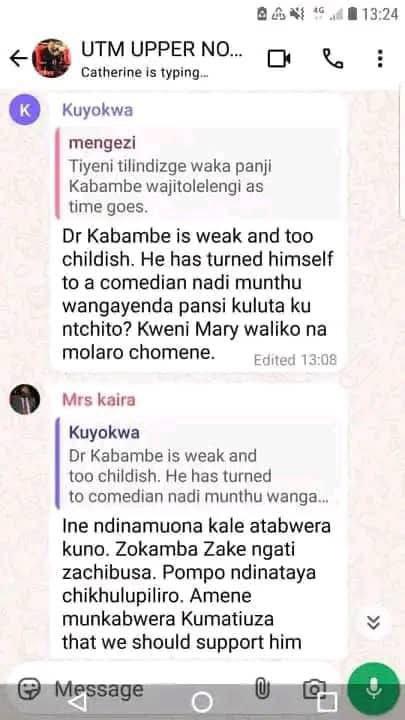
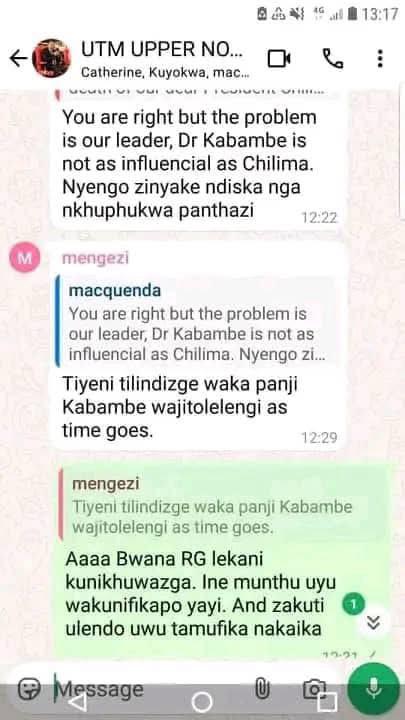

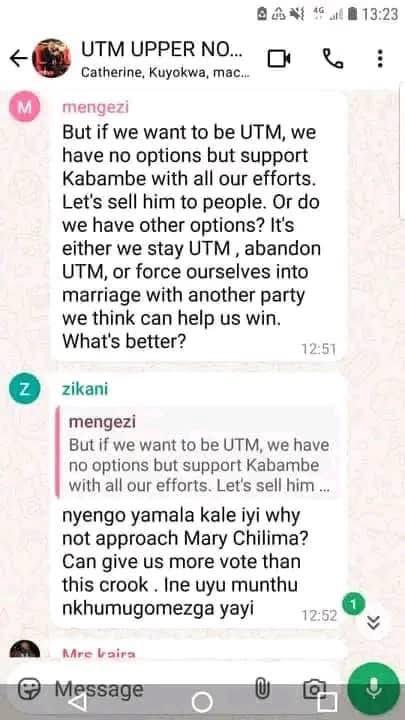
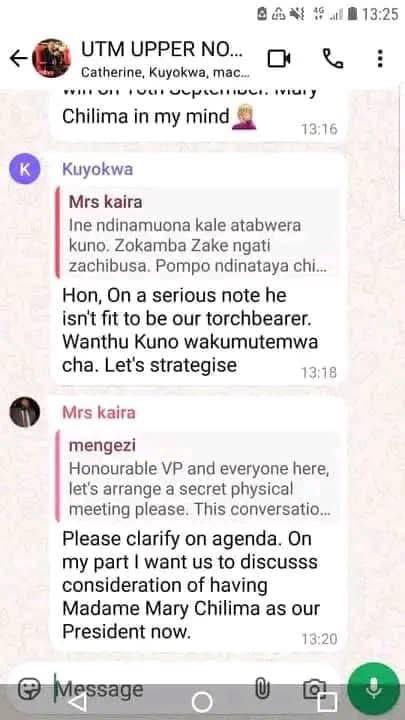
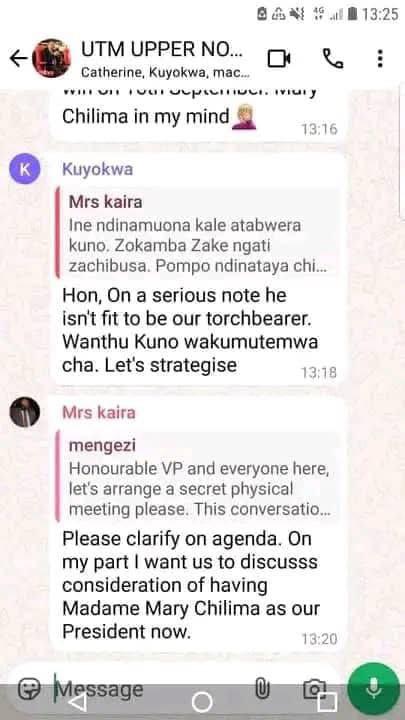
His arrival in UTM was largely seen as a strategic move to gain influence following the death of the maverick leader Dr. Saulos Klaus Chilima, but now it seems that this move has not paid off as expected.
Inside UTM, senior party officials have grown increasingly frustrated with Kabambe’s leadership style. According to reports, there have been secret meetings and talks within social media platforms among some of the party’s leaders discussing the possibility of impeaching Kabambe due to his perceived incompetence and inefficiency.
UTM, which once had the potential to be a formidable political force under Chilima’s leadership, is now struggling under Kabambe’s cold, shy, and seemingly detached leadership. Many party members feel that he lacks the charisma and political savvy to inspire the grassroots support that UTM desperately needs to maintain relevance on the national stage.
The DPP Alliance: A Delicate and Tense Negotiation
The situation becomes even more complicated when one looks at the ongoing negotiations between UTM and DPP regarding a potential alliance.
Kabambe and Mutharika have been engaged in talks, where a key issue is who will be the presidential candidate and who will serve as running mate.
The DPP’s position is clear: The former president wants to remain the face of the party, although reports indicate that he is ready to give up the September elections presidential candidacy to whoever the party goes into an alliance with.
However, his lieutenants within the party are insisting that the candidate for the presidency in any alliance should be from DPP, with the running mate also chosen from within DPP ranks. This has created a major point of tension, as Kabambe, supported by some UTM followers, insists that he should be the presidential candidate, with the DPP or even Mutharika himself getting the running mate slot.
The DPP’s insistence on maintaining control over the presidential candidacy is seen by many as a tactic to preserve the party’s dominance in any future government.
Kabambe has been pursuing this alliance with a sense of urgency, hoping to secure the presidential position before the DPP forces him into a secondary role. This has led to a series of secretive meetings between Kabambe and Mutharika, where the two have reportedly discussed a plan to have Kabambe as the candidate and Mutharika as the vice president.
This plan has been met with skepticism by many both within UTM and DPP. Critics argue that this proposed arrangement would merely be a façade.
Senior DPP officials, including those with presidential ambitions of their own, have voiced their displeasure with Mutharika’s unilateral decision to support Kabambe’s rise. They argue that this move effectively sells the party to UTM, a grouping they deem to be politically weak and lacking in grassroots support.
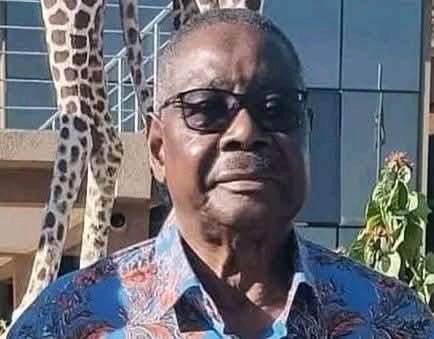
The DPP officials have made it clear that they cannot accept an arrangement where Mutharika is sidelined in favor of a figure like Kabambe, who they also view as politically inexperienced and untested.
The Tensions Between Kabambe, DPP, and UTM
The crux of the issue lies in the underlying distrust between Kabambe, DPP, and UTM.
Kabambe’s apparent willingness to align himself with Mutharika and DPP raises questions about his loyalty to UTM and its founding ideals. Critics within UTM accuse him of being a pawn in a larger scheme orchestrated by Mutharika and his closer allies to regain control of the political landscape in Malawi using the UTM.
The fact that Kabambe’s entry into UTM was allegedly facilitated by Mutharika has further fueled suspicions that UTM could be absorbed into DPP, effectively dissolving the party’s identity.
The DPP-UTM alliance itself has become a highly contentious issue. While Kabambe and his supporters argue that it is a necessary political maneuver to build a strong opposition to the current government, many in UTM fear that it will be a death knell for their party.
The terms of the alliance proposed by DPP are seen as heavily skewed in favor of Mutharika’s faction of Norman Chsale, Alfred Gangata and the former First Lady Gertrude Mutharika who would want to be pulling the strings behind the scenes, making Kabambe a puppet leader and relegated to a symbolic role even as a presidential candidate.
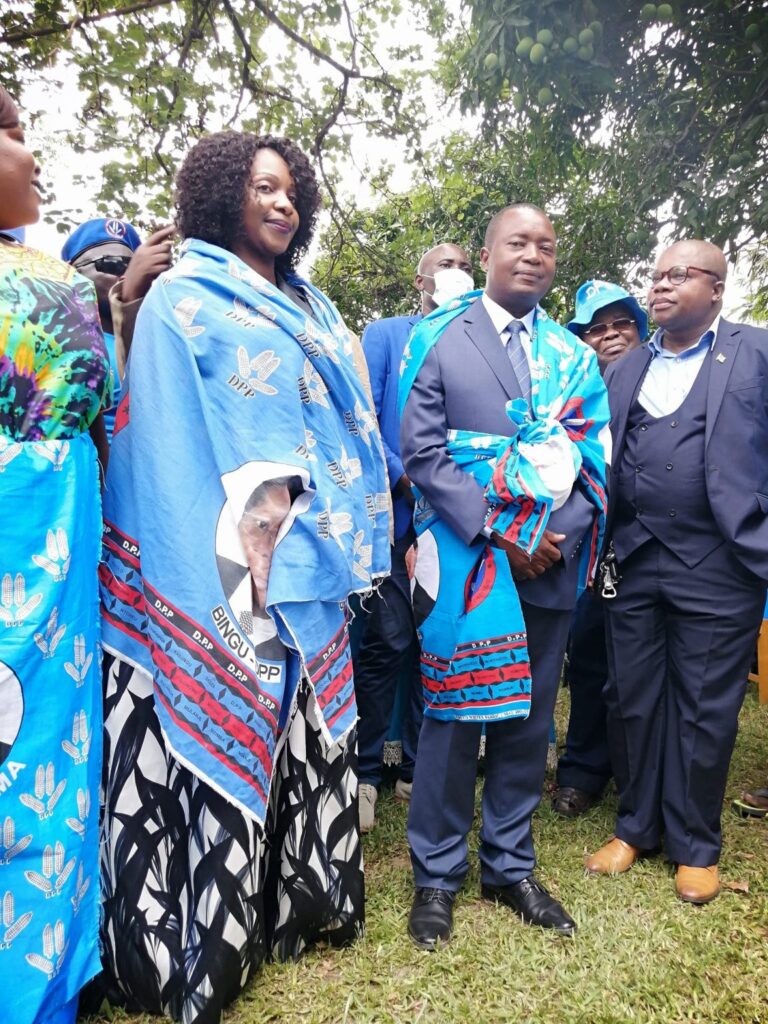
On the other hand, it is feared that DPP’s dominance in the proposed alliance would allow Mutharika and his inner circle to maintain control over the government, while Kabambe would be left with limited power and influence.
This unease is compounded by Kabambe’s repeated failure to build a meaningful coalition with smaller parties such as UDF, AFORD, and PP. Each of these parties has rejected Kabambe’s overtures, citing his lack of political experience and leadership credentials as key reasons for not supporting him. This pattern of rejection highlights Kabambe’s struggle to build alliances and solidify his position as a viable candidate for the presidency.
The Question of UTM’s Survival
As the situation continues to unfold, the future of UTM is in jeopardy. Kabambe’s leadership has become increasingly untenable, with his allies in the party questioning his ability to lead effectively. Moreover, the proposed alliance with DPP threatens to undermine UTM’s identity and political agenda, as it risks turning the party (once again) into a mere appendage of the DPP.
The reality of the situation is that UTM faces a stark choice: either it will fight to maintain its independence and break away from the influence of DPP, or it will succumb to the political maneuverings of Mutharika and his men. The party’s fate will largely depend on how its members respond to these mounting pressures and whether they are willing to challenge Kabambe’s leadership before it’s too late.
The coming months will determine whether UTM can survive as an independent force in Malawi’s political landscape or if it will be swallowed up by DPP in a political game of survival and control.
So far, it is apparent that Kabambe has hit a wall and his political journey may be heading toward a dead end.





